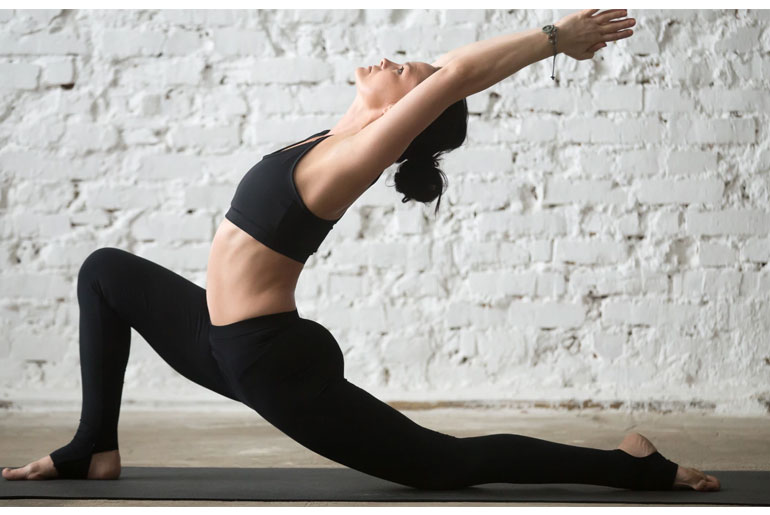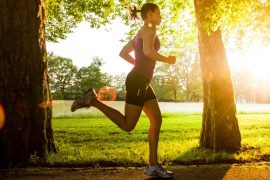Yoga offers valuable benefits for athletes by improving flexibility, balance, and core strength, which enhance performance and reduce injury risk. Regular practice helps increase range of motion, stabilize muscles, and improve posture, all of which contribute to better control and coordination. Additionally, yoga’s focus on breath control and relaxation aids in boosting endurance and accelerating recovery from intense training. By integrating yoga into their routines, athletes can also enhance mental clarity and focus, which are crucial for peak performance and overall well-being.
Yoga is increasingly being embraced by athletes as a complementary practice to traditional training methods. Its benefits span physical and mental domains, contributing significantly to overall athletic performance. Here’s a detailed summary of how yoga supports athletes:
1. Improving Flexibility
Benefits:
- Increasing Range of Motion in Joints: Yoga helps in enhancing the range of motion in various joints, which is crucial for sports that involve extensive movement and flexibility.
- Lengthening and Stretching Muscles: Regular yoga practice involves stretching muscles, which can alleviate tightness and muscle imbalances often experienced in sports.
- Improving Overall Body Awareness: Through yoga, athletes develop better body awareness, allowing them to notice and address areas of tightness or imbalance.
Key Poses:
- Downward-Facing Dog: Stretches the hamstrings, calves, and lower back.
- Pigeon Pose: Targets hip flexors and glutes, which are commonly tight in athletes.
- Standing Forward Bend: Stretches the hamstrings and lower back, promoting overall flexibility.
2. Building Functional Strength
Benefits:
- Utilizing Body Weight Resistance: Yoga builds strength using body weight, which complements the strength gained from weightlifting and sport-specific exercises.
- Engaging Multiple Muscle Groups Simultaneously: Many yoga poses require the engagement of various muscle groups, promoting balanced strength and coordination.
- Improving Core Strength and Stability: Strong core muscles are essential for balance and control in athletic performance.
Key Poses:
- Chaturanga: Strengthens the arms, shoulders, and core.
- Warrior Sequences: Build strength and stability in the legs, core, and upper body.
- Crow Pose: Challenges balance and arm strength, enhancing overall body control.
3. Enhancing Recovery and Reducing Injury Risk
Benefits:
- Promoting Blood Flow to Muscles: Yoga helps in increasing circulation, which aids in muscle recovery.
- Reducing Muscle Soreness and Stiffness: Restorative yoga poses can help alleviate muscle soreness and improve flexibility.
- Decreasing Stress and Promoting Relaxation: Yoga’s emphasis on relaxation and breath work reduces stress and aids in faster recovery.
Key Poses:
- Legs-Up-the-Wall: Enhances blood flow and relaxation.
- Reclined Bound Angle Pose: Opens the hips and promotes relaxation, aiding recovery.
4. Mental Benefits for Athletic Performance
Benefits:
- Improved Focus and Concentration: Yoga practices enhance mental clarity and focus, which are crucial during competitions.
- Stress Reduction and Anxiety Management: Yoga helps in managing pre-competition nerves and maintaining composure under pressure.
- Enhanced Body Awareness and Proprioception: Better body awareness and proprioception contribute to improved performance and injury prevention.
Key Techniques:
- Mindfulness and Breath Work: These practices help athletes stay present, manage stress, and improve breathing techniques during physical exertion.
Yoga offers a holistic approach to improving athletic performance by addressing flexibility, strength, recovery, and mental resilience. Incorporating yoga into an athlete’s training regimen can unlock new levels of performance and longevity. It’s essential to start gradually and listen to your body to maximize the benefits and prevent injury. Whether for professional athletes or casual enthusiasts, yoga provides valuable tools for enhancing overall athletic capability.
Disclaimer:
The information contained in this article is for educational and informational purposes only and is not intended as a health advice. We would ask you to consult a qualified professional or medical expert to gain additional knowledge before you choose to consume any product or perform any exercise.







